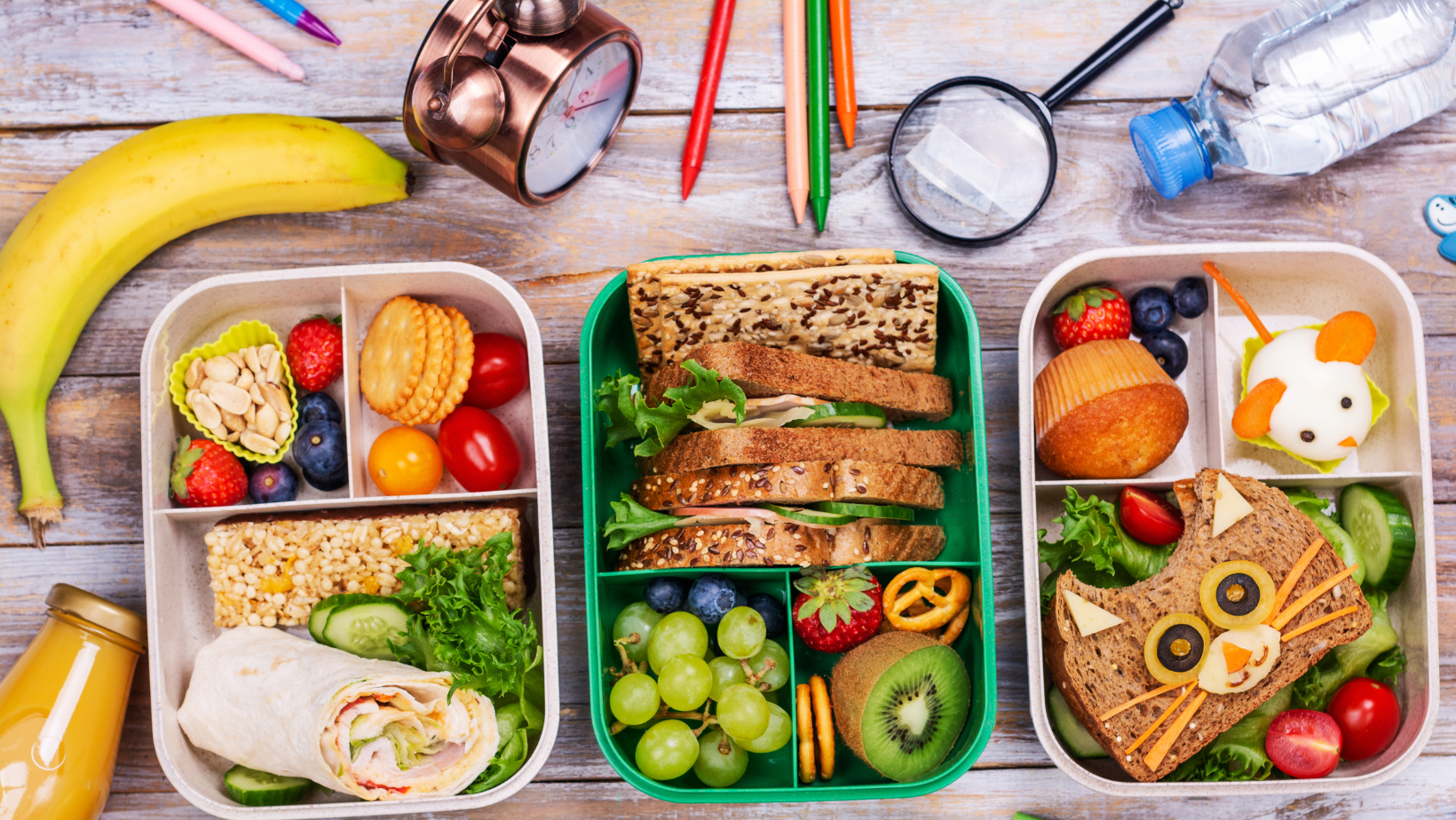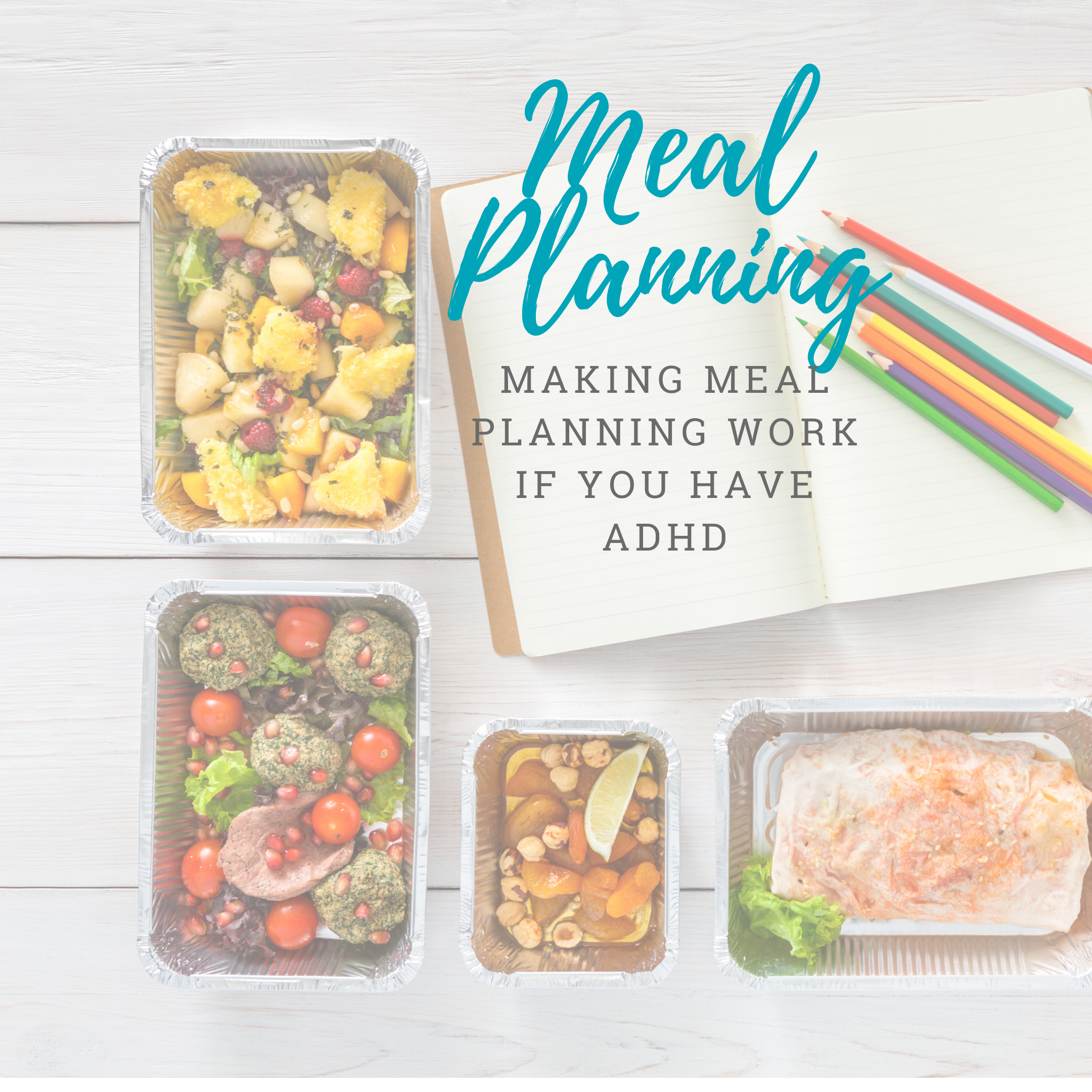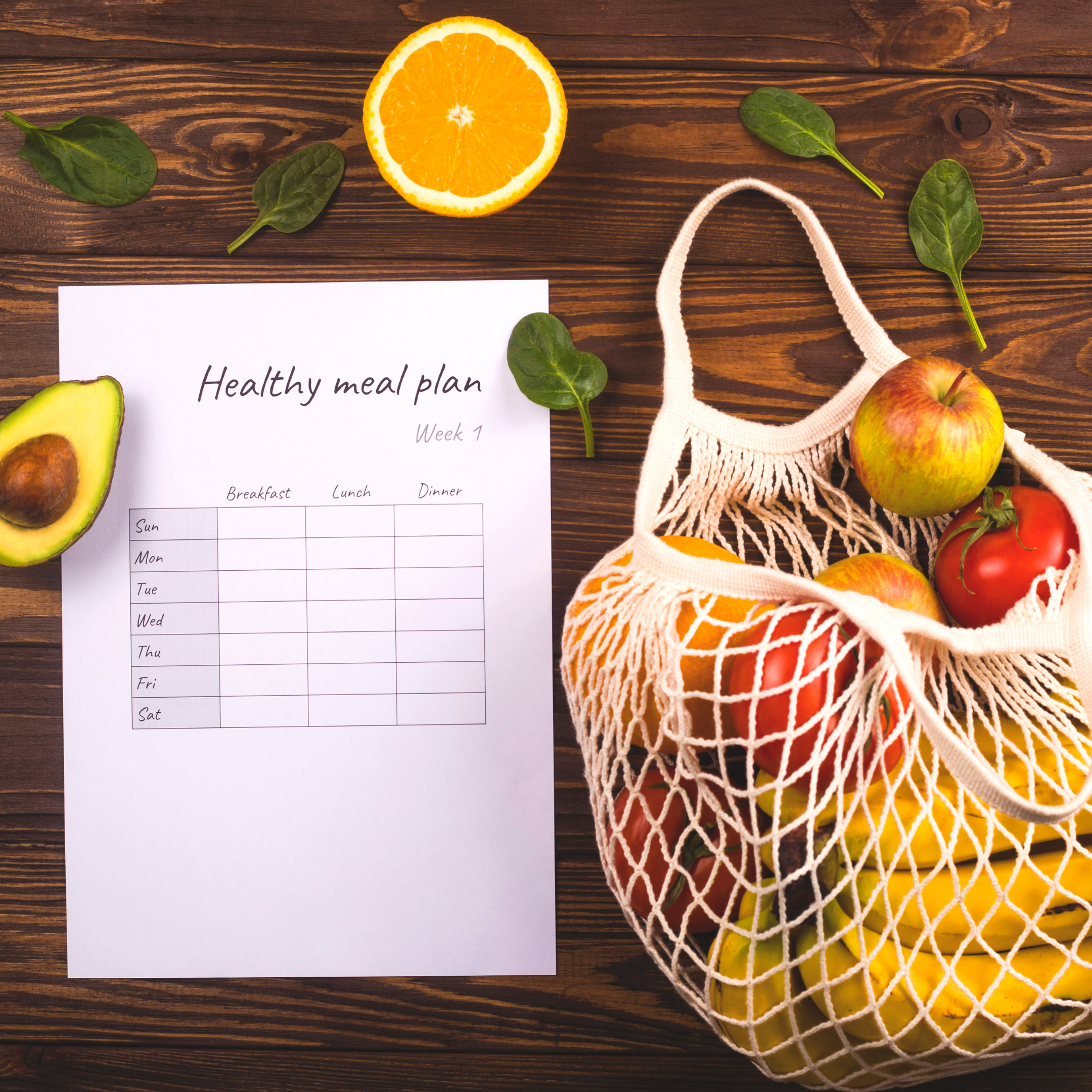
Quiz: Are You a Meal Prepper? Discover the ADHD Benefits
Meal prepping can be a game-changer, especially for those with ADHD. It’s not just about organizing your meals; it’s about improving focus, managing impulsivity, and setting yourself up for success.
Take this quiz to find out if you’re a meal prepper and learn about the incredible benefits it offers for individuals with ADHD.
Quiz Time: Are You a Meal Prepper?
1. Do you plan your meals in advance, at least a few days ahead?
- Always
- Sometimes
- Rarely
- Never
2. How often do you cook multiple servings of a dish to eat throughout the week?
- Every week
- Once in a while
- Rarely
- Never
3. How do you feel about grocery shopping?
- Excited, I love it!
- Neutral, it’s okay.
- Overwhelmed, but I manage.
- It’s a struggle.
4. What’s your reaction when you’re hungry but don’t have a meal ready?
- No worries, I have a stash of prepped meals.
- I’ll figure something out quickly.
- I might grab unhealthy snacks.
- Panic mode – it’s chaos!
5. How much time do you spend on meal preparation each week?
- About an hour a day
- A few hours on the weekend
- Whenever I find time
- I play it by ear
Results:
If you answered mostly:
- A’s: Congratulations, you’re a meal prepper pro! You understand the value of planning ahead and have likely experienced the benefits it brings.
- B’s: You’re on the right track! You might not meal prep consistently, but you’re aware of its advantages.
- C’s: Meal prepping isn’t your strong suit, but you’re open to exploring its potential benefits.
- D’s: Meal prepping could be a game-changer for you. Consider the positive impact it could have on managing ADHD symptoms.
The ADHD Benefits of Meal Prepping
1. Improved Focus:
Meal prepping reduces decision fatigue by eliminating the need to figure out what to eat each time you’re hungry. This helps conserve mental energy, allowing you to stay focused on important tasks.
2. Reduced Impulsivity:
Having prepped meals on hand helps prevent impulsive food choices, which can be common for individuals with ADHD. You’re less likely to grab unhealthy snacks or opt for fast food when you already have nutritious meals ready to go.
3. Time and Energy Savings:
Meal prepping might seem time-consuming upfront, but it saves time and effort throughout the week. You’ll spend less time cooking on a daily basis, giving you more room for other activities.
4. Consistent Nutrition:
People with ADHD often struggle with maintaining consistent eating patterns. Meal prepping ensures that you have balanced meals available, which can positively impact your overall well-being.
5. Stress Reduction:
The peace of mind that comes with knowing you have meals ready can significantly reduce stress. You won’t have to worry about last-minute food arrangements.
Recap
Meal prepping isn’t just for fitness enthusiasts; it’s a powerful tool for staying organized and ensuring you maintain a balanced diet. By taking the quiz and considering the benefits, you’ve taken the first step toward incorporating this strategy into your routine. Give meal prepping a try and experience the positive impact it can have on your focus, impulsivity, and daily productivity. Your journey to better ADHD management starts in the kitchen!
Need Help Managing ADHD?
Do you need help with time management or other organizational strategies? Whether you need ADHD coaching or therapy, our multidisciplinary team has everything you need under one roof. To get started, request an appointment today.
Learn More
7 Ways to Stay Hydrated (and How Hydration Impacts ADHD)
Managing your ADHD symptoms matters, and controlling those symptoms plays a big role in your quality of life. There are many strategies to choose from when it comes to ADHD. For example, if you struggle with time management, you might include some planning and organizing strategies in your daily routine.
But what about brain fog? Brain fog is a common ADHD symptom, and according to the experts at Harvard Health, brain fog (and task initiation and forgetfulness) can all be linked to ADHD.
Brain fog can also develop due to lack of sleep, not drinking enough water, and not eating enough protein, so it’s important to focus on self-care too.
Is lack of water exacerbating your brain fog symptoms? In this article, we’ll highlight seven strategies for staying hydrated.
7 Strategies for Staying Hydrated
Need help staying hydrated? Experts suggest that adults drink eight 8-ounce glasses of water each day, although this number can vary. You might need more fluid intake if you’ve been working out, live in a hot, dry climate, or if you’ve lost a lot of water through sweating.
You can support hydrating with these strategies:
- Add fresh fruit slices to the water for a fun treat! Lemon, strawberries, oranges, pineapple, and limes are particularly refreshing.
- Tip: slice each fruit very thin. The thinner the fruit, the more infused the water becomes.
- Add fresh herbs such as mint. (You can also combine fresh herbs with fresh fruit.)
- Keep a bottle with you at all times. It’s much easier to stay hydrated when your water bottle is already at your desk.
- Find a large water bottle. The larger it is, the less likely you’ll have to go refill it, making it more likely that you’ll log those ounces!
- Drink one glass of water as soon as you wake up — so you can start the day off right!
- If you exercise, be sure to bring water with you to the gym (or just keep it next to you if you work out at home.)
- Keep a pitcher of fresh water on your dinner table.
You can also log your glasses in an app or on a note-pad if it helps you keep track. The goal is to stay hydrated and build healthy habits that support your mind and body.
How Water Improves Your Mental Health

Drinking 64 ounces of water isn’t a magical cure. It won’t eliminate or cure ADHD, but staying hydrated does support your brain health and improve brain functioning, according to a 2018 study published in the World Journal of Psychiatry.
“Water facilitates signaling pathway and nutrients delivery to the brain, removes toxins and inflammatory markers and provides energy sources for brain, and thereby improves brain function.
The World Journal of Psychiatry
Researchers from the same study found that individuals who chronically didn’t drink enough water had higher levels of anxiety.
Other Self-Care Strategies
Self-care isn’t just a mani-pedi or a trip to the spa. Self-care is about taking care of your entire mind and body. Examples of self-care includes:
- Eating well-balanced and nutrient-dense meals
- Staying hydrated
- Sleeping 7-9 hours each night
- Exercising daily
- Making appointments (healthcare, mental health care, dental, etc.)
- Spending time each day doing something you love (reading, crocheting, etc.)
To learn more about self-care, you can take our free Self-Care for ADHD course.
If you need help managing ADHD, our compassionate and expert team excels in diagnosing ADHD. We also offer therapy, ADHD coaching, and medication management.
Call our Louisville, Kentucky office at 502-907-5908. You can also book an appointment here.
Learn More
Meal Planning & ADHD: 9 Tips to Make It Work
Planning meals for your family can be stressful — especially if ADHD leads to feeling disorganized and unprepared. Learning how to meal planning can eliminate some stress around mealtimes.
Why Is Meal Planning Hard If You Have ADHD?
Meal planning refers to taking the time to choose your meals for the week. It can also include making your grocery list for the week too. So why is this so difficult if you have ADHD? Meal planning requires decision-making, planning, prioritizing — all of which are executive function skills. Because ADHD can lead to struggles with executive function skills, the struggle makes sense.
In other words, meal planning can be overwhelming and incredibly ADHD-unfriendly. The good news is that meal planning is a skill – and skills can be learned. In this article, we’ll explore the benefits of meal planning as well as 10 tips to make meal planning less overwhelming.
5 Benefits of Meal Planning for Your Family
Meal planning provides many benefits for you and your family. Exploring these benefits can be really motivating to stick with your plan. Think of this as your WHY as you embark on meal planning.
Meal planning can provide the following five benefits:
- Reduces the feelings of overwhelm around planning for meals.
- Helps you eat healthier. Planning ahead gives you a better chance of planning healthier meals.
- Saves you time. Save time by avoiding the need to run to the store multiple times. You’ll also save time each night because you won’t have to think about what to make — you already know.
- Saves you money. You can save money by reducing cutting out impulse buys and by avoiding duplicate purchases. Planning ahead also gives you an opportunity to take advantage of the weekly sales at your grocery store. Planning ahead also helps you stick with your budget.
- Helps you cut back on fast food. We’ve all been there: it’s late and dinner isn’t made yet — so you order take-out. Planning ahead cuts out last minute fast-food choices.
In the next section, we’ll share tips for making meal planning less overwhelming.
9 Strategies for Making Meal Planning Easier
1. Make a Master List of 10 Recipes
A master list of recipes provides quick and easy references to some of your family’s favorite recipes.
Tips for making a master list:
- Include plenty of easy recipes for busy nights (think: Instapot or CrockPot recipes)
- Sort your recipes by category (beef-based, pasta dishes, chicken, side dishes, soups, etc)
- Keep them written down (in a blank journal, on a Word document, or on flashcards in a recipe box organizer)
When meal planning, you can refer to your master list to fill out your weekly meals. You can use as many recipes as you want. You might use meals only from your master list. Or, you can use some from your list and try 1-2 new recipes each week. Do what works for you.
Need inspiration? You get your free ADHD-friendly recipe book here.
2. Don’t Try to Memorize Your Meal Plan
 Trying to memorize your meal plan will increase the risk that you deviate from the plan. You can write your meal plan:
Trying to memorize your meal plan will increase the risk that you deviate from the plan. You can write your meal plan:
- In a daily paper planner
- In an app
- On a dry erase board hanging in your kitchen
Tip: Using the dry erase board in the kitchen might be helpful to make sure your whole family is on the same page. This can limit the “What’s for dinner?” question.
3. Plan All of Your Meals
If you don’t make a plan for breakfast or lunch, you’ll more likely to either skip the meal or grab something quick from a drive-thru.
Include all of your meals when you meal plan. This doesn’t mean that breakfast or lunch has to be elaborate, time-consuming meals, either.
Examples include:
- Hard-boiled eggs and toast and a piece of fruit
- Overnight oats
- Brown bag lunch ideas such as leftover meat from dinner as a sandwich
Even if breakfast and lunch are quick meals, planning for them gives you time to get them ready. For example, if you know you want hard-boiled eggs for breakfast, you can make sure you allot time in the morning to get that done.
4. Check Your Daily Schedule
What if you have to work late on Tuesday? What if the kids have a dance recital on Thursday? Even on the busiest nights, you’ll still need dinner — but by taking your calendar into consideration, you ensure that you’ll have dinner ready.
Tip: You might designate busy nights as the slow-cooker night. You can also designate busy nights as leftover night — just reheat and go!
5. Check Your Pantry
When you’re meal planning, you don’t need to make 7 dinners each night from scratch with a pantry overhaul. You can use what you already have in your pantry to inspire your meals for the week.
For example, if you have a lot of canned tomatoes in your pantry, then plan a spaghetti night. Lots of chicken in your freezer? Try a pulled chicken recipe in your crockpot.
6. Choose In-Season Produce
Plan meals based on what’s in season. For example, planning a berry-based salad in the middle of winter might not lead to the best salad. Out-of-season produce tends to have less flavor and be more expensive.
Tip: If you want a fruit that is out-of-season, try the frozen version.
7. Don’t Forget to Plan for Leftovers
One of the most frustrating things is to end the week with a fridge full of leftovers. Instead, plan for your leftovers. Leftover night can be quite handy on busy nights.
Leftover nights cut down on wasted food, and it also gives you a night off of cooking.
How to make leftover nights not-so-boring:
- Get creative! If you don’t like having the same meal twice, you can repurpose your meals. For example, if you had steak on Monday, use the leftover steak to make steak tacos on Wednesday.
- Leftovers aren’t just for dinner. Make your lunches out of dinner leftovers. For example, if you have leftover roast chicken, you can slice it and top your salad with it.
8. Make Extra and Freeze It
Time-permitting, make a double batch of your favorite recipes. You can eat one batch for dinner, and then freeze the second batch for later. This can come in handy the following week if you need a quick dinner.
What can you freeze? Consider making double batches of meals such as:
- Soups (Lay flat in a Ziploc to freeze; once frozen, you can turn upright and stack soup easier.)
- Chili
- Bolognese sauce
- Waffles
- Meatloaf or salmon loaf
9. Schedule Your Meal Planning Time
The first step to meal planning is actually doing it. Set aside designated time to work on your meal plan in peace. It shouldn’t take more than 30 minutes.
Need More Guidance?
If you’re still feeling overwhelmed with planning and organizing tasks, we can help. Here at Next Step 4 ADHD, we provide comprehensive, multimodal support, including:
- Medication management
- Therapy
- ADHD coaching
- Online courses, including our FREE self-care course which focuses on nutrition
To make an appointment or to learn more, call us at 502-907-5908. You can also request an appointment here.
Learn More
ADHD Diet: What We Eat & Why It Matters If You Have ADHD
We all know that it’s important to eat healthy foods, but did you know that good nutrition can make a huge difference in the management of ADHD symptoms? A poor diet can make anyone feel sluggish, distracted, and even depressed. [1] Add ADHD to the mix, and it is easy to see how a low-nutrition diet can intensify the daily challenges of living with ADHD. Many people find that incorporating nutrition-rich foods into their lifestyle greatly improves troublesome symptoms of ADHD.
That’s why the ADHD coaches at NextStep 4 ADHD are happy to help you navigate the challenges of establishing a nutrient-dense ADHD-friendly diet. From creating time-saving meal prep strategies to eliminating unhealthy food choices, our coaches are with you every step of the way.
In the meantime, continue reading to learn more about nutrition and how it affects those living with ADHD.
Why Good Nutrition Matters
You are what you eat. You’ve heard the saying, but have you ever really thought about it? What you eat can energize, provide essential nutrients, and power all of the major functions of your body.
What you eat and the quality of what you eat has a profound effect on your body. This is why runners often eat a carb-heavy meal before a run; because they know carbohydrates provide energy for the body. The opposite is also true. Poor nutrition impacts the body, too. For example, studies show that diets high in sugar tend to increase cravings and feelings of hunger. [2]
Here are a few benefits of a well-balanced, nutrient dense diet. Good nutrition:
- Can improve brain function
- Can increase energy levels and motivation
- Promotes general good health
- Can enhance your mood
- Can help you maintain a healthy weight
- Can help control symptoms of ADHD [3]
- Can improve sleep habits
- Balances blood sugar levels, which affect all of the above
The takeaway: good nutrition is important for a healthy mind and body, and in the next section, we’ll explore how ADHD can impact your food habits.
How ADHD Can Impact Food Habits
If you struggle with impulsivity or time blindness, you might be tempted to grab a fast meal, and unfortunately, “fast” isn’t always healthy. This isn’t the only way that ADHD can impact food habits. Below is a list of common ADHD symptoms and how those untreated symptoms can impact food habits.
Forgetfulness
Forgetfulness is a common ADHD symptom, and it can increase the likelihood that you forget to go shopping for food or even forget to eat. When you realize how hungry you are, you may then make desperate, unhealthy food choices.
Impulsiveness
If you’re feeling hungry, you might reach for whatever looks appealing in the moment.
Emotional regulation and stress tolerance
If you’re feeling stressed or overwhelmed, you’re more likely to engage in emotional or binge eating. According to the American Psychological Assocation, 38% of adults report stress eating as a way to cope with high stress levels.
Lack of Planning/Prioritization
Planning can be difficult for those with ADHD, and difficulty planning can affect what you eat as well. This may create challenges with:
- Planning shopping trips
- Meal planning
- Setting aside time to prepare healthy meals
In addition, difficulty planning can make it hard to come up with a realistic plan to improve eating habits.
Procrastination
The notion of procrastination is nothing new. It’s been discussed in literature dating back to Ancient Greece! [4] However, procrastinating can make it easy to put off the goal of improved nutrition.
Reduced Appetite
Stimulant medication may reduce your appetite. [5] While a reduced appetite can help prevent overeating (simply because you’re less hungry), a reduced appetite can work against optimal nutrition. If a reduced appetite results in skipping meals, it can make it challenging to consume adequate daily nutrients.
A Balanced ADHD Diet
A balanced ADHD diet looks a lot like a diabetes-friendly diet. Why? Because controlling blood sugar levels is beneficial in countless ways.
Have you ever waited too long between meals and gotten a headache, felt shaky, had brain fog, or become irritable? That’s an indication that your blood sugar levels have dropped to the point of causing physical symptoms. Time to listen to your body and eat! Better yet, plan ahead to avoid blood sugar crashes. By the time you experience symptoms, your body is going to crave simple carbohydrates to quickly raise your blood sugar levels. You likely won’t be reaching for broccoli at this point.
Maintaining healthy blood sugar levels helps to stabilize many symptoms of ADHD and can increase the likelihood of sticking with a high-nutrition diet.
A healthy diet is as much about what you eat as what you don’t eat. A balanced ADHD diet should include:
- Protein with every meal
- Vegetables and/or fruit with every meal
- Healthy fats like omega 3 fatty acids
- Fiber
It’s important to avoid:
- Processed foods
- High-sugar foods
- Artificial sweeteners
- Artificial dyes & preservatives
In addition to avoiding unhealthy additivies, avoid an attitude of deprivation – focus on incorporating healthy foods you love!
It may seem like a big task to overall your diet, but it can be done. Like all endeavors, remember that all journeys start with just one step.
But How Can You Improve Your Diet?
Keep these tips in mind:
- Start small. Consider focusing on one meal of the day. Maybe you want to start eating a healthy breakfast, packing a lunch for work, or learning some healthy recipes for dinner. Whatever it is, decide how many days per week you could do this, and make a plan.
- Before you start, go shopping. All the good intentions in the world can’t override a hungry stomach and nothing to eat but junk food. Make sure that you always have healthy food choices on hand, both at home and at work.
- Consider finding a friend or coworker (or coach!) who will start on a healthy eating plan with you. This adds in a layer of accountability and encouragement.
- Don’t stress over perceived failures. Establishing new habits takes time. It’s normal to fall back to old, easy eating patterns on your road to healthier eating. Just press restart on your healthier choices that same day. Keep at it, and your “fall-backs” will happen less often.
- Make it fun! Find ways to encourage yourself. Research recipes, try new foods, talk with a “foodie” friend who can give you some tips. Make your mealtime aesthetically pleasing – put on some music, clear the table of clutter, sit down and truly enjoy your food.
- Celebrate every small victory. Acknowledge your efforts as well as your successes. This not only feels good and encouraging, but it actually increases the chances of repeating the positive behavior. If you want to succeed with your healthy eating plan, be willing to treat yourself like a good friend.
Ready to Give Your Diet a Makeover? We’re Just a Call or Click Away
At NextStep 4 ADHD, we’re happy to provide 1:1 coaching for ADHD — and you don’t have to make the trip into our office. If you’re struggling to eat a well-balanced diet, we offer online ADHD coaching via telecoaching, coaching over the phone, or in-person coaching in our convenient Kentucky offices in Louisville and Lexington. Call the location of your choice, or send us a message to request more information.
Don’t forget to sign up for a membership so you can stay up-to-date with the latest news!
References:
- Pelsser, Lidy M., Klaas Frankena, Jan Toorman, Huub F. Savelkoul, Anthony E. Dubois, Rob Rodrigues Pereira, Ton A. Haagen, Nanda N. Rommelse, and Jan K. Buitelaar. “Effects of a Restricted Elimination Diet on the Behaviour of Children with Attention-deficit Hyperactivity Disorder (INCA Study): A Randomised Controlled Trial.” The Lancet, vol. 377, no. 9764, 2011, pp. 494-503.
- Penaforte, Fernanda Ro, et al. “Short-Term Impact of Sugar Consumption on Hunger and Ad Libitum Food Intake in Young Women.” Nutrition Research and Practice, The Korean Nutrition Society and the Korean Society of Community Nutrition, Apr. 2013.
- Pelsser, Lidy M. J., et al. “A Randomised Controlled Trial Into the Effects of Food on ADHD.” European Child & Adolescent Psychiatry, vol. 18, no. 1, 2008, pp. 12–19., doi:10.1007/s00787-008-0695-7.
- https://www.psychologicalscience.org/observer/why-wait-the-science-behind-procrastination
- Jeffers, Amy J, and Eric G Benotsch. “Non-Medical Use of Prescription Stimulants for Weight Loss, Disordered Eating, and Body Image.” Eating Behaviors, U.S. National Library of Medicine, Aug. 2014, www.ncbi.nlm.nih.gov/pubmed/25064292.
